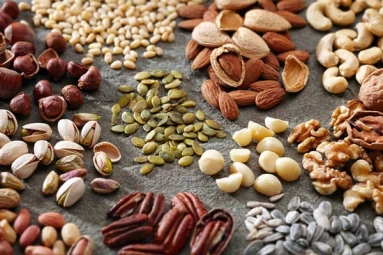
(Image source from: Canva.com)
Avocados have gained recognition as a superfood, loaded with a variety of beneficial nutrients, including healthy fats, vital vitamins, and key minerals. The method of consumption significantly influences how effectively your body can utilize these nutrients. To fully harness the health benefits associated with avocados, it is important to combine them with suitable foods and prepare them in the right way.
These fruits are particularly rich in monounsaturated fats, which enhance the uptake of fat-soluble vitamins like A, D, E, and K. They also deliver essential vitamins such as C, E, K, and various B vitamins, including folate, niacin, riboflavin, and pantothenic acid, all of which contribute to immune function, skin vitality, and energy levels. In addition, avocados have a higher potassium content than bananas, assisting in blood pressure regulation, and they contain magnesium, copper, and manganese. Their antioxidant properties, featuring compounds like lutein and zeaxanthin, support eye health, while omega-3 fatty acids benefit brain functions.
Certain nutrients, especially carotenoids like lutein and zeaxanthin, require specific conditions or the presence of additional dietary fats for optimal absorption. Without the appropriate combinations, the full potential of avocados might not be realized. They are a treasure trove of nutrients, providing numerous health advantages. Being abundant in heart-friendly monounsaturated fats, they can aid in lowering bad cholesterol and enhancing cardiovascular health. The vitamins found in avocados support immune health, promote radiant skin, and boost energy levels. Additionally, their potassium levels support blood pressure management and muscle performance. With a high fiber content, avocados facilitate digestion and promote satiety, making them beneficial for those managing their weight. The antioxidants they contain, like lutein and zeaxanthin, protect against eye strain, while omega-3 fatty acids foster cognitive health.
Optimal Ways to Enjoy Avocados:
Combine Avocados with Healthy Fats: Because avocados contain fat-soluble nutrients, eating them alongside other healthy fats boosts their absorption. Consider pairing them with olive oil, nuts, seeds, fatty fish, or full-fat dairy to elevate nutrient intake. For instance, incorporating avocado in a salad drizzled with olive oil can enhance carotenoid absorption by up to 15 times.
Add Foods Rich in Vitamin C: While avocados supply iron and other essential minerals, their absorption is greatly enhanced when paired with vitamin C sources. Complementing them with citrus fruits, bell peppers, or tomatoes can maximize nutrient uptake. A simple guacamole made with tomatoes and a dash of lime juice can facilitate better iron absorption along with providing a significant antioxidant boost.
Mix with Leafy Greens: Dark leafy greens like spinach, kale, and arugula are abundant in beneficial compounds such as beta-carotene, lutein, and vitamin K. These nutrients are absorbed more effectively in combination with healthy fats, making avocados an ideal addition to salads or green smoothies.
Avoid High Heat When Cooking: Although avocados can be cooked, subjecting them to high temperatures may lead to the loss of important nutrients such as vitamin E and antioxidants. To keep their health benefits intact, it’s best to consume them raw, lightly grill them, or introduce them into dishes after they have been prepared. For instance, incorporating avocado into scrambled eggs after they are cooked ensures that the healthy fats and valuable nutrients remain unaffected.
Scrape the Skin for Maximum Nutrients: Many people are unaware that the part of the avocado closest to the skin holds the highest levels of antioxidants. Instead of removing the flesh carelessly, it is important to carefully scrape the inner layer of the skin to fully benefit from the nutrition in every spoonful.
Disadvantages of Avocado:
Despite their numerous health advantages, avocados are not without their downsides. Their high fat content makes them calorie-rich, which can lead to weight gain if consumed in large amounts. Some individuals might experience digestive issues like bloating due to their fiber levels. While persin, a natural compound present in avocados, poses no harm to humans, it is toxic to pets. Additionally, allergic reactions can occur, especially among those sensitive to latex. Individuals with kidney problems should also exercise caution due to the high potassium content in avocados.
Avocados are rich in vital nutrients, but the way you eat them is essential for optimizing their health benefits. Combining them with suitable foods, reducing their exposure to heat, and enjoying the most nutrient-dense parts can greatly improve nutrient absorption. Whether they are blended into smoothies, used as a spread on toast, or tossed into salads, consuming avocados in an optimal manner can enhance their positive effects on overall health.










